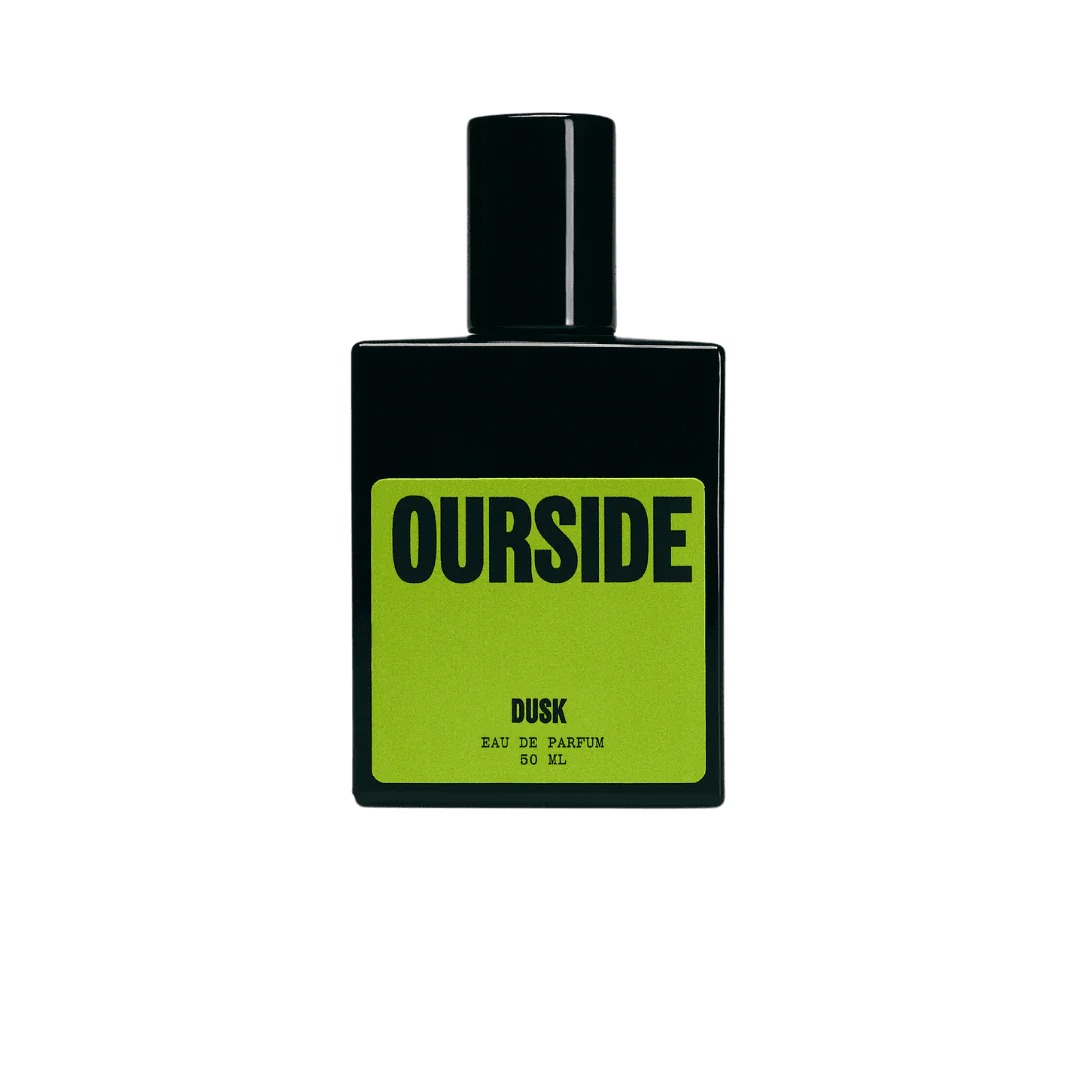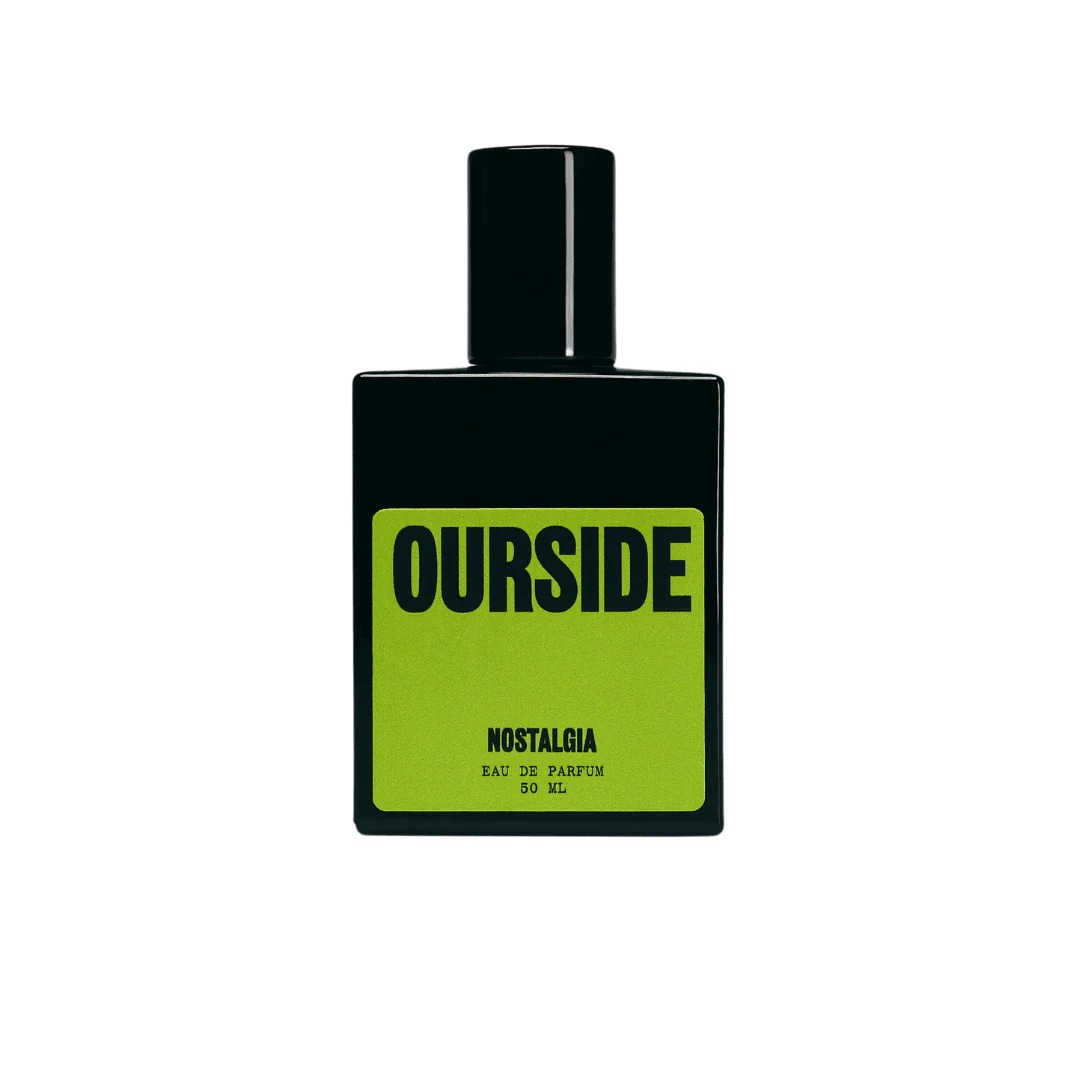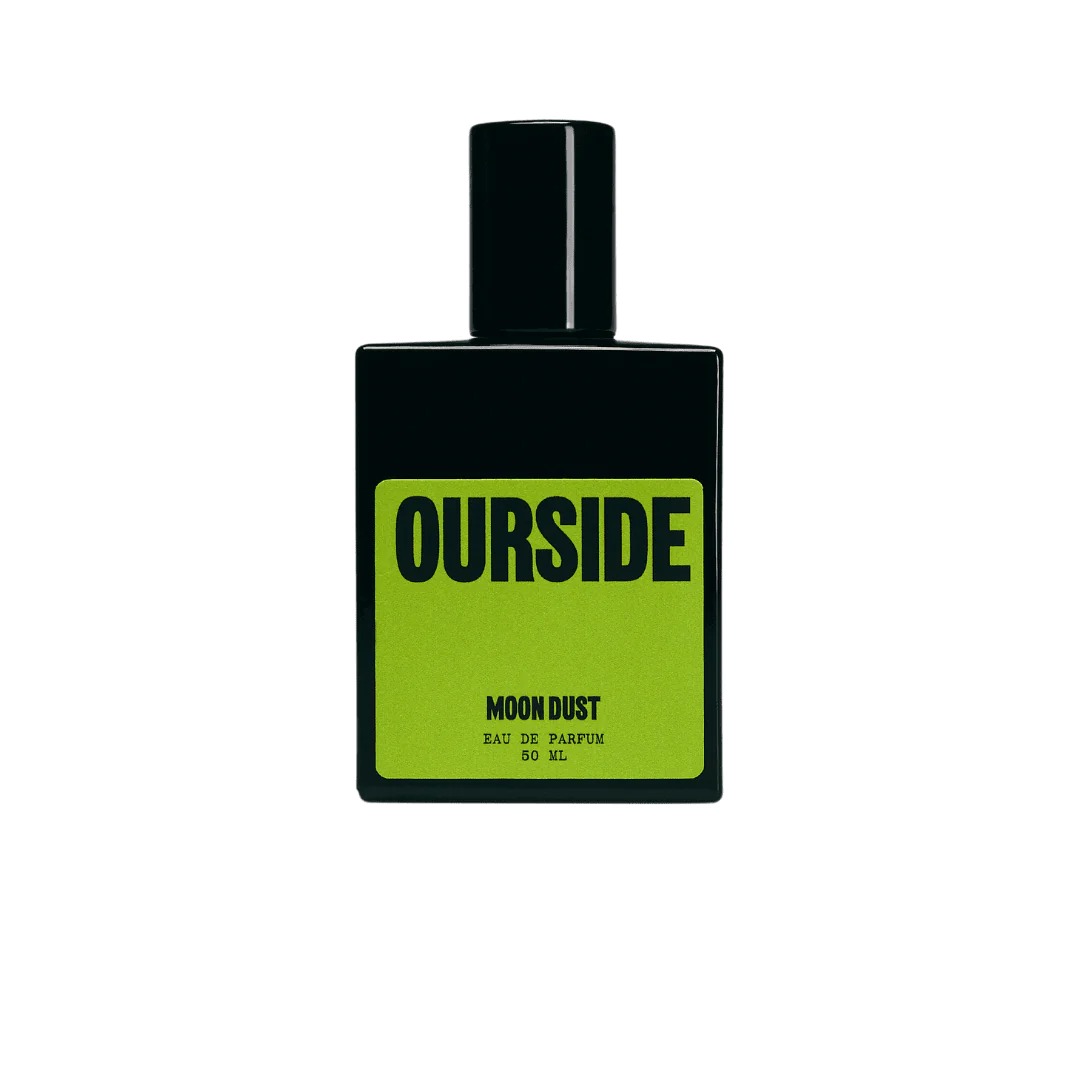This Black-Owned Fragrance Brand Is Changing the Luxury Space—3 Scents We Love

With a firm handshake, say hello to Business of Beauty—an exclusive inside look at each of the incomparable journeys of entrepreneurs of color in the beauty industry. This series is anything but business as usual. It's a raw, honest look at the unique and often overlooked challenges that people of color face when starting their own beauty brands. Each founder will reveal the biggest hurdles they've overcome, their internal struggles, and their deepest thoughts about what needs to change in the beauty industry (and the world, really) to make it a more inclusive space for everyone.
This time around, we're getting to know Ourside founder Keta Burke-Williams. Ourside is a new kind of luxury fragrance brand that's all about connection and empowerment. Keep reading for an inside look at Burke-Williams's journey into entrepreneurship.
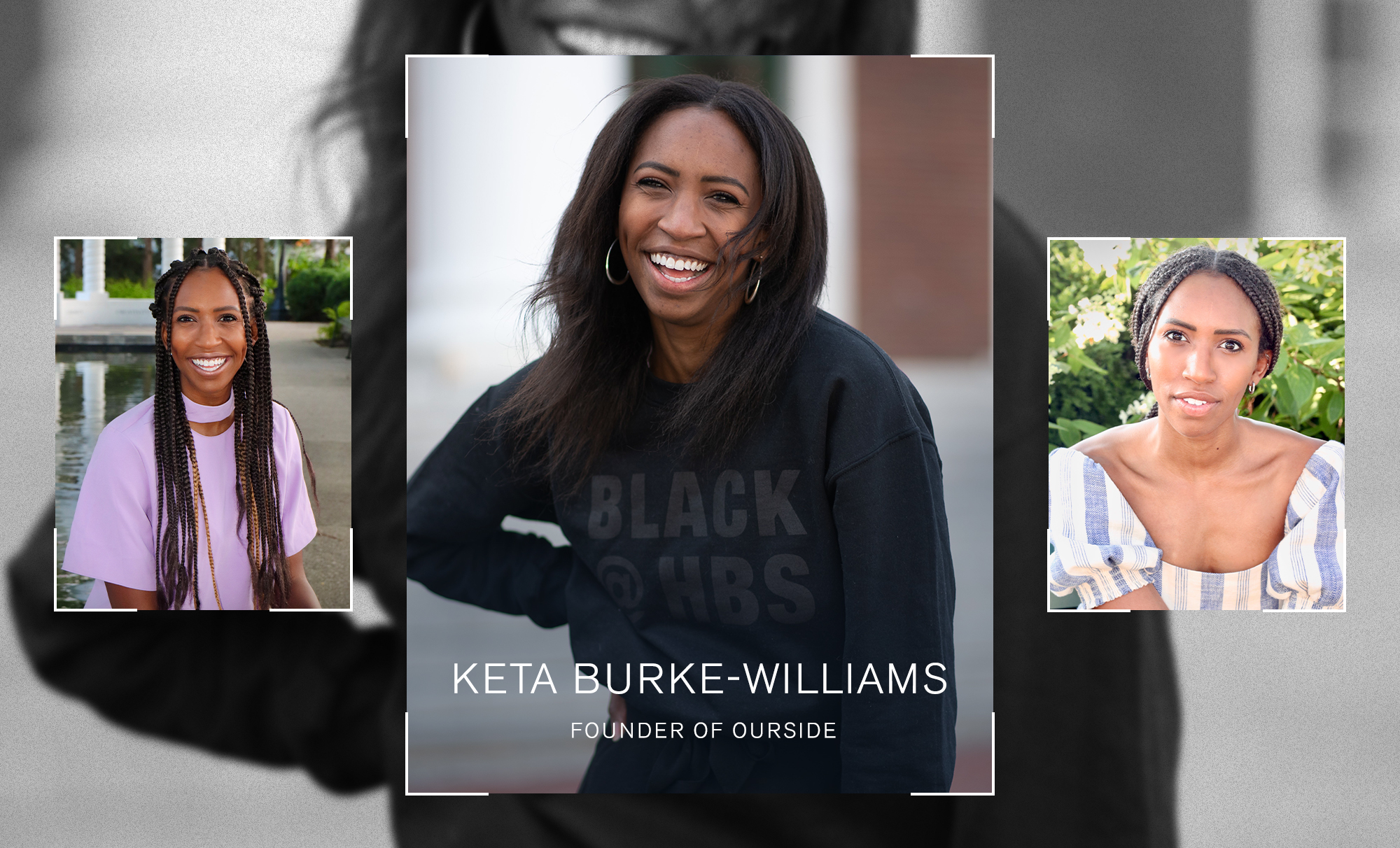
Keta Burke-Williams has a new vision for the future of the fragrance industry. The Harvard Business School grad started Ourside, a luxury fragrance company with an ethos of connection and empowerment, after a simple conversation with her sister. She was reminded that space can be made for Black and Brown entrepreneurs and their unique ideas, despite what they've been told in the past. Ourside is a place for everyone, but particularly for those who feel like they don't quite fit in or don't belong in any particular box—the misfits, dreamers, and pioneers of the world. Read on for Burke-Williams's journey into entrepreneurship, her biggest challenges when starting her business, and how Ourside is moving the fragrance industry fully into the future.
I'd love to start by hearing a little bit more about your background and what drove you to create Ourside.
I live in New York normally, [but] I grew up in Ohio. My mom is Jamaican, and my dad is [also] Black. I grew up kind of feeling like I was always that kid who never quite fit in. I grew up in an all-white suburb and [had this] this multicultural upbringing, so I sought escapes. That escape, at first, was figure skating. I still remember the way that the ice rink smelled—like a combination of Zamboni gas, cold air, and the Trident Tropical Twist gum that I would always chew. Later, that escape came through reading and through scent, whether it was going to Bath & Body Works and smelling the cucumber melon lotion or burning candles with my mom on the weekend.
For me, scent became this thing where I could escape, close my eyes, and be transported somewhere different just for 30 seconds. But I didn't do anything with it. I followed more of a studious path. I went to college. I worked for a big Fortune 100 company—Kraft, Heinz—after school. I lived in Chicago doing sales and analytics, and then I went to work for Carnival Cruise Line in Miami. I then started applying to business schools, and I ended up going [to Harvard Business School]. And again, I thought I was going to follow a typical path. I lined up a management-consulting internship and a part-time early-stage venture-capital internship because that's what I thought I was supposed to do.
My first year at school, I was visiting my sister, and we were just chatting and catching up, and she was telling me how she had gone into a Credo store and made a lot of swaps for skincare and haircare. She was also looking for a new fragrance. She said, "These brands haven't really changed their values. All the brands that I want to support don't seem like they're in this new place with me. I don't feel like they care about supporting women who look like me, and quite frankly, I'm over it." She's a few years younger than me, so she's all about the "I can demand more from everyone" phase, but she was so right. That was when I had the idea that somebody should be doing something about that, and then we felt like maybe we could do something about that. I started working on the idea with a grant from Harvard between my first and second years. I still did the internships because I had already agreed to do those, so this was the thing I did at 2 a.m. every day in the summer, but I loved it! I continued to work on it in my second year, after school as well, and now full-time. So that's the path of how Ourside came to be.
The first year that Amy Liu did Tower 28's Clean Beauty Summer School, we got to participate in that. I think we were the only company that didn't really have a product at that point yet [laughs], but that really helped validate the vision. I felt like I was crazy for trying to do it because, Why hadn't it been done? It was nice to have somebody say, "I see where you're going, and I think that there's something there." We also did Credo for Change a few years ago, and ever since, Annie Jackson from Credo has been this incredible mentor figure for me. This [past] fall, we also did Ulta's Muse Accelerator. Through those programs, it was really helpful to shape and guide the brand as it came to debut in January, which is kind of crazy.
I love that! I think there needs to be more space made for brands owned by Black and Brown folks like you were saying earlier. What else did you learn from Annie Jackson, and how has that helped your journey into entrepreneurship?
Too many things to list! I feel like she has this incredible wealth of knowledge because she's been in the beauty industry for so long. What I learned from her is that starting small isn't always a bad thing. Have a big vision, but tackle problems in small pieces. I also learned that generosity goes a long way. She has opened her doors and her connections to me in ways that I really just didn't expect. That's how I aspire to be as a leader. I think the last thing that I learned from her and the different programs that I was in is that it's not enough anymore to be a clean brand or to rest on the laurels of the product formulation, especially with fragrance. I think we're doing something really special and different, but we're not reinventing the wheel. There had to be something more that we stand for behind that. Through her and through the programs that I did, we did a really good job hashing out why we want to exist and where we see ourselves going as a brand.
What would you say is the core of the brand mission and ethos? What do you really want people to take away from it?
The idea of scent connecting us. I love fragrances because I think that they can create this single moment of connection that can allow us to see each other as humans. I think that's really important and really needed in times like these. That's what we're trying to do within fragrance, and we're trying to do it for people who felt like they never belonged or never quite had this place. Oftentimes when you think about seeing yourself in a brand, you think that all of you needs to match the entire DNA of the brand. Instead, … whatever piece of you resonates with us, we're here to welcome that, and I think that's something different that we're trying to do and then doing it in a way where we bring conscious formulations. We formulate in the U.S., we manufacture in the U.S. in New York, and we try to do things in a more conscious way, which I think hasn't happened a lot yet in fragrance.
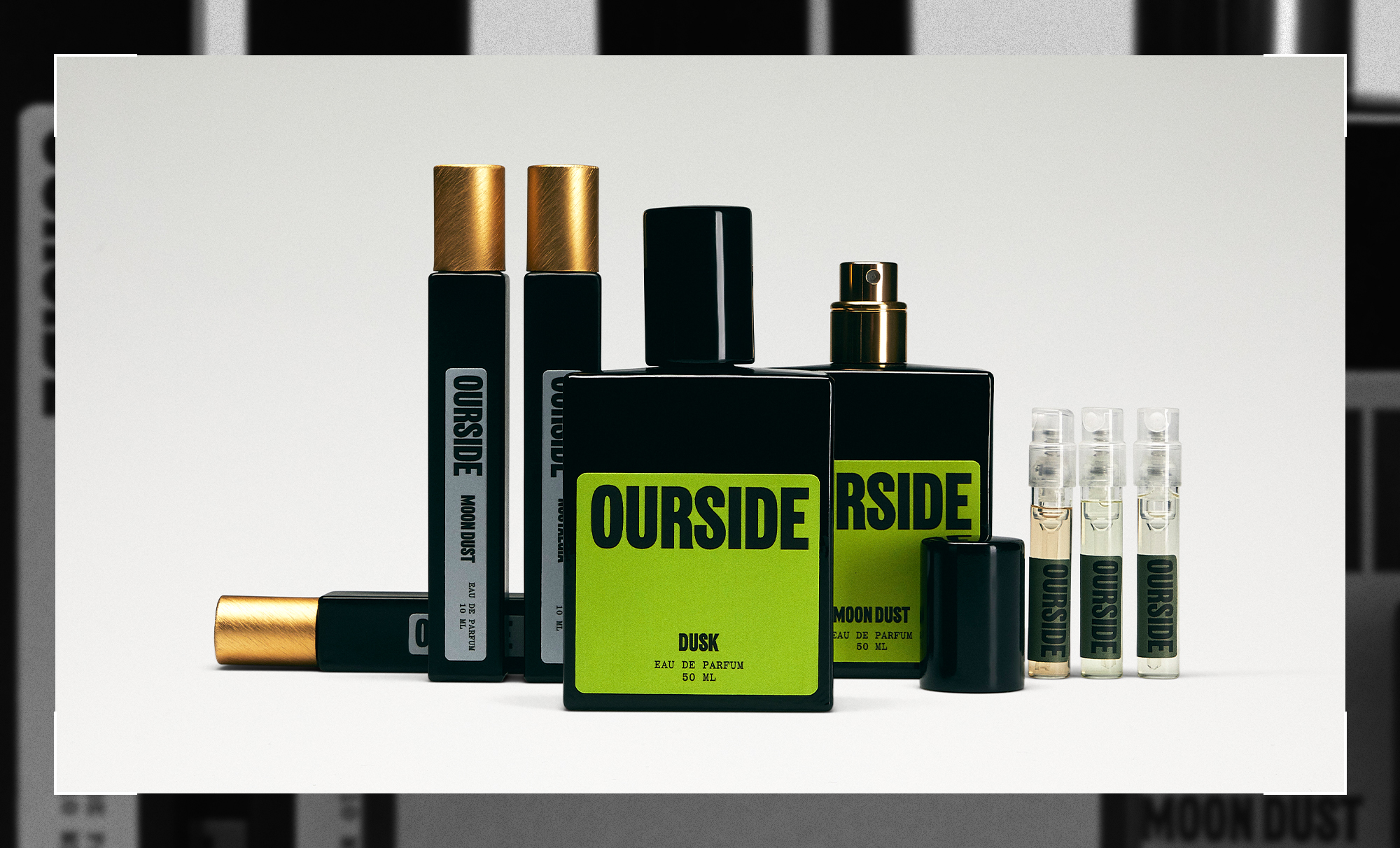
Do you also ever feel like the fragrance industry is largely white-dominated? It's great to see more Black and Brown entrepreneurs breaking into the fragrance space!
I think of fragrance as one of the last categories within beauty to see a lot of transformation. Within skincare and within color cosmetics and haircare, we see a lot of different creators of color bringing their stories to life and bringing their communities along with them. But to your point, in fragrance, it's that last frontier where, for some reason, it hasn't seen a lot of change. That's something that I'm trying to change the narrative around, especially when it comes to how I think of our brand. We definitely want to play in this luxury space, and I think that's also something that we don't see a lot of. I'm trying to carve out a space to show that a Black-owned brand can be luxurious, conscious, local, and amazing instead of just fitting into one box. So I agree. I don't know why fragrance has been so closed off, but I'm excited that we're seeing more visions come to life within it.
Definitely. I'm excited to see more beauty brands that are catering specifically to Black and Brown skin—we're definitely making progress. What have been some of the biggest challenges you've faced starting your business? How did you overcome them?
A big one, as I'm sure a lot of people say, is access to capital. I'm the only one full-time on the business right now. In terms of finding venture backing, I was able to fundraise a little bit of capital, and I feel like that was definitely against all odds. That's one big barrier because it took me a long time for people to be able to see the vision and for me to be able to find investors who I felt like were aligned with that and didn't want me to change the vision. The second challenge was carving out our space and getting people to know about us. We've had a lot of good luck in terms of press—some unexpected, like "PerfumeTok" influencers—but we don't have a big budget for that, so everything that happened is organic. The weird thing about fragrance versus a lot of other [beauty] categories is that there's no before and after. It's just how it makes you feel, so thinking about how to share the power of our fragrances has been another challenge that we're still tackling.
I feel like PerfumeTok is great for fragrances to get attention and go viral. If you had to choose one Ourside scent to wear for the rest of your life, which would it be, and why?
I would probably say Dusk because that is my everyday go-to. Dusk I use for a date night or when I'm going out or something, and Nostalgia I use for a rainy day. Moon Dust is the first fragrance we formulated, so that's nearest and dearest to my heart. This is like choosing your favorite child or something [laughs]! To go with one, it would be Dusk because I feel like it's so good for everyday wear.
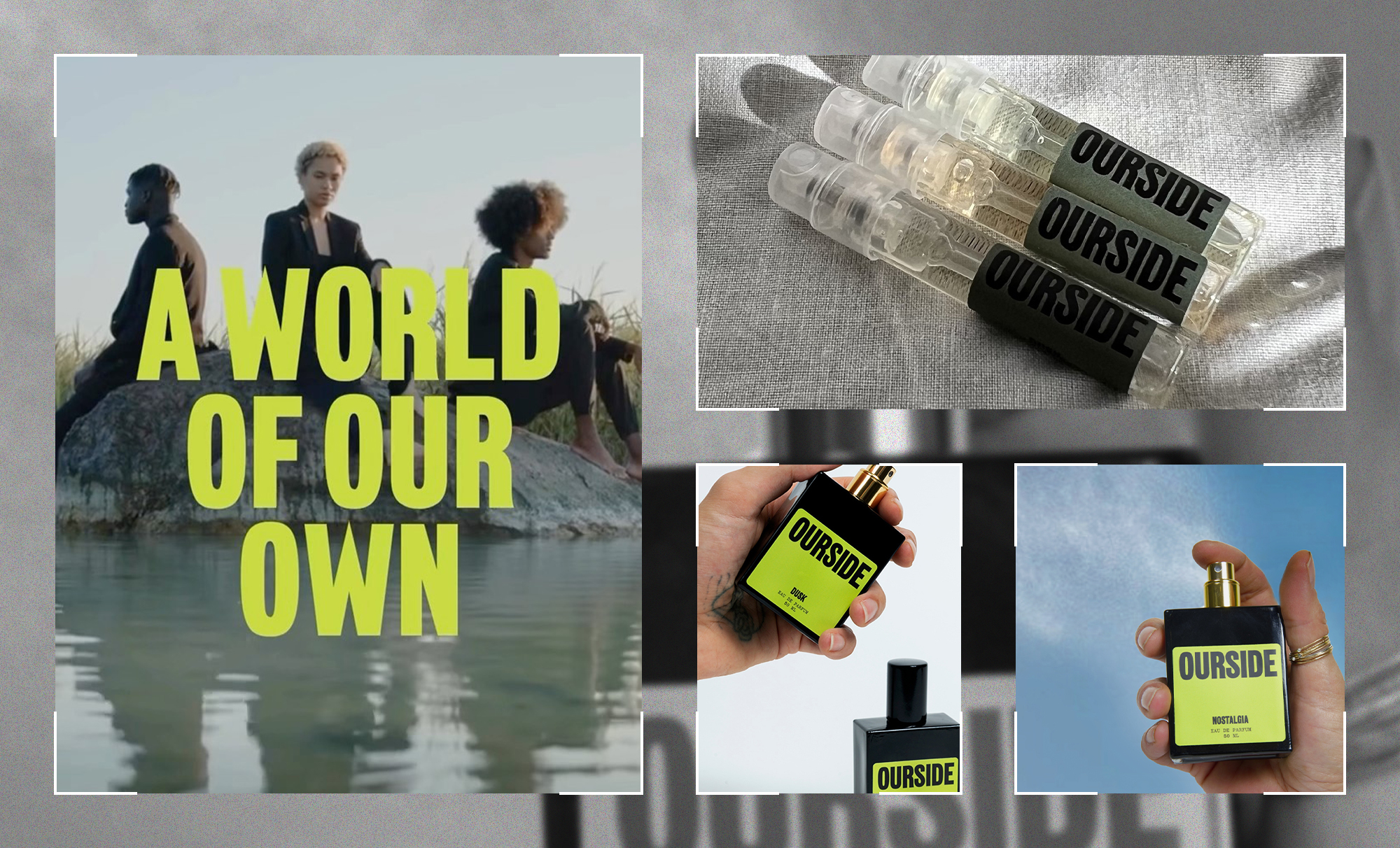
What would you like to see change in the beauty industry?
First, I'd like there to be more space for us. I think now it's great that there are mandates with things like the Fifteen Percent Pledge to encourage retailers to share some shelf space where there hasn't traditionally been space for us. In an ideal world, we wouldn't need that space, and we also wouldn't be fighting for that small amount of space because everyone would see the validity of our brands. I think it's so interesting because when we think about a lot of beauty trends that are happening, a lot of them come from people of color. I would just love for us to be valued and seen.
Especially within the beauty industry (and within Black- and women-owned companies), there's a clear correlation between getting funding and a company performing really well. I just hope that, especially in the early stages, entrepreneurs are given a chance to shine because I think that's when it's the hardest—when it's most uncertain. I'd love to see a little bit more attention, funding, and support going there so that we can all have a chance to bring our visions to life. And I hope that for our brand we get to be in a place where we are a Black-owned brand, but we're also so much more than that.
Do you guys have anything else in the works that you can share a little bit more about?
We're working on testing a candle! I can say that much. We're trying to stay very limited with our portfolio just because I think it's important to be mindful about everything that we put out. But we're definitely testing a candle, and I love it!
Sustainability seems to be another important part of your mission, which I love.
I think something I realized is that we're another company, and we're providing something that I feel is crucial, but I know that it's not life or death, right? It's not like I'm bringing a miracle to the world. I'm bringing something that has had a lot of care and time brought into it, but I want to make sure that, if I'm bringing something new, at least we're being mindful of our impact on the planet. I like to say that we're a conscious brand just because I think it's hard to know what the terms "sustainable" or "clean" mean.
With our formulations, we're conscious—we're not all-natural. We have a combination of natural, raw, and safe synthetic materials because sometimes it isn't sustainable for us to source sandalwood, for example, so we opt for synthetic. That will always be part of our DNA. Also, when it comes to packaging, our secondary packaging is FSC certified, and it's paper based so that it can be recycled. I think that luxury can and should be forward-thinking, so that'll always be a part of our DNA. I also love being able to work with a woman of color–owned manufacturer (they're located in the Bronx) and just showing that something of luxury can be created in an unexpected place. I feel like I just like proving people wrong!
Shop Ourside
Up Next: Klur Founder Lesley Thornton Puts the Needs of Black Skin First—Here's Why
Shawna Hudson is a beauty, wellness, lifestyle, and travel writer with over 10 years of experience. She graduated from California State University, Fullerton, with a degree in journalism and has written for other publications such as Bustle, The Zoe Report, Byrdie, Elite Daily, and more. She is currently a beauty writer at Who What Wear and hopes to continue feeding her (completely out-of-control) beauty obsession as long as she can. Stay up to date on her latest finds on Instagram @shawnasimonee.
